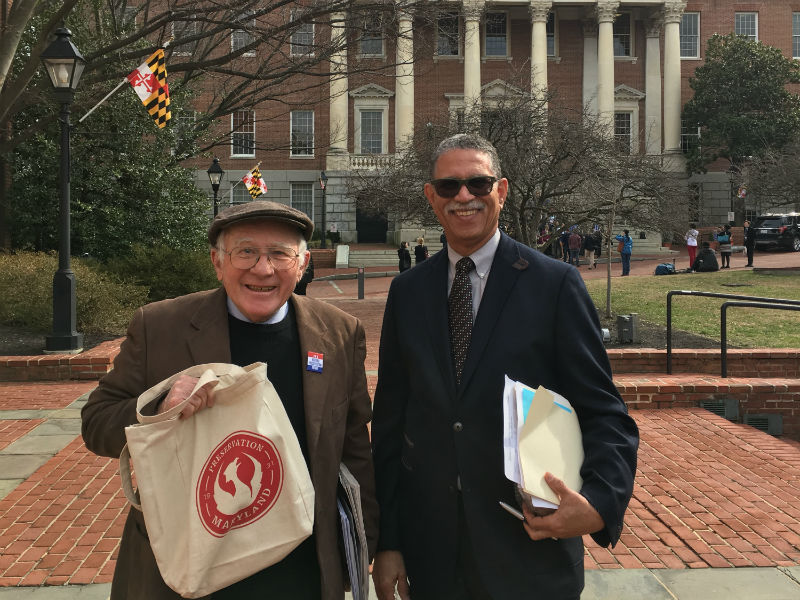On the heels of the 2017 legislative session, considered one of the most successful legislative sessions for preservation in the past 50 years, Preservation Maryland is working on a further expansion of existing law to create an even better environment for preservation in the state.

Preservation advocates at History Advocacy Day 2017.
With the support of numerous legislators and advocates from around the state, Preservation Maryland worked to introduce to ambitious pieces of legislation during the 2018 session of the Maryland General Assembly. The two new pieces of legislation include:
The Heritage Structure Rehabilitation Tax Credit – Reserve Fund – Mandated Appropriation
House Bill 954/Senate Bill 481. [Introduced by Sen. Bill Ferguson (Baltimore City) and cross-filed in the House of Delegates by Del. Alonzo Washington (Prince George’s County)] This legislation would guarantee $15 million in funding for the state historic tax credit’s large commercial program — a $6 million increase over current funding. As of 2018, Maryland invested only $9M in this program for the entire state. By comparison, Virginia invests nearly $100M annually in their state historic tax credit. Massachusetts and Wisconsin, each with similar state budgets and population size to Maryland, both invest approximately $50M annually in their state programs. Maryland has fallen far behind and this legislation will begin to address that issue.
Heritage Structure Rehabilitation Tax Credit – Commercial REHABILITATIONs – Transferability and Affordable Housing
House Bill 1454/Senate Bill 967. [Introduced by Sen. Bill Ferguson (Baltimore City) and cross-filed in the House of Delegates by Del. Alonzo Washington (Prince George’s County)] This legislation is comprised of a series of policy changes to the state historic tax credit program to make the credit work more effectively, cost less and make more dramatic impacts across the state. In addition, the legislation would provide an additional 5% credit for historic tax credit projects resulting in affordable housing. Specifically, this legislation:
- Increases the state Historic Tax Credit to 25% for projects resulting in affordable housing. It incentivizes this activity, but does not require this activity (unlike previous proposals).
- Allows the state Historic Tax Credit to be transferred outside of the partnership in which it was generated.
- Eliminates a burdensome requirement that prevents multiple tax credits from going to functionally related structures.
Next steps
With introduction complete, Preservation Maryland is working to gather support for both pieces of legislation. The next step will be to have both bills heard in hearings in their respective chambers. Preservation advocates interested in supporting these initiatives should contact their member of the General Assembly and urge them to support these pieces of legislation.
Preservation Maryland also continues to work on advancing its broader legislative agenda, which includes increased funding for Heritage Areas, full funding for Non-Capital & Capital preservation grant programs as well as the full funding of Program Open Space.
Learn more about the economic value of our state historic tax credit

